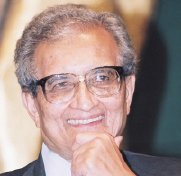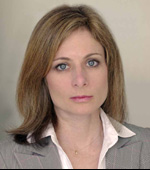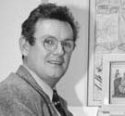 Note: This interview was broadcast on WCAI/WNAN, and is also featured on WGBH’s Science Luminaries series, as part of WGBH Science City.
Note: This interview was broadcast on WCAI/WNAN, and is also featured on WGBH’s Science Luminaries series, as part of WGBH Science City.
The provocative Harvard psychologist Marc Hauser recently spoke about “The Evolution of Our Moral Intuitions” at the Harvard Museum of Natural History, as part of the Cambridge Science Festival. This ThoughtCast interview with Hauser serves as a good “first course” — but to get to the meat and potatoes, check out his book Moral Minds.
Click here:  to listen. (17:40 minutes)
to listen. (17:40 minutes)
And to listen to Marc Hauser on the WGBH Forum Network, click here!
Podcast: Play in new window | Download
Subscribe: RSS

 Amartya Sen, the distinguished economist, philosopher, Nobel laureate and Harvard professor, talks with ThoughtCast about “Identity and Violence: The Illusion of Destiny.”
Amartya Sen, the distinguished economist, philosopher, Nobel laureate and Harvard professor, talks with ThoughtCast about “Identity and Violence: The Illusion of Destiny.” Professor Randall is a theoretical particle physicist who sees past the rest of us to a world of extra dimensions and parallel universes. Hers is a world of warped geometry, sink-holes and branes — a world that fills glaring gaps in current thinking, and can finally explain why gravity is so ‘weak’!
Professor Randall is a theoretical particle physicist who sees past the rest of us to a world of extra dimensions and parallel universes. Hers is a world of warped geometry, sink-holes and branes — a world that fills glaring gaps in current thinking, and can finally explain why gravity is so ‘weak’! Noted Cambridge poet David Ferry has recently translated Virgil’s Georgics, and on ThoughtCast he joins Virgil scholar Richard Thomas, the chair of Harvard’s Classics Dept., for a detailed examination of this beautiful and insufficiently known poem. It is said to have taken Virgil 7 years to write, from about 36 to 29 B.C.
Noted Cambridge poet David Ferry has recently translated Virgil’s Georgics, and on ThoughtCast he joins Virgil scholar Richard Thomas, the chair of Harvard’s Classics Dept., for a detailed examination of this beautiful and insufficiently known poem. It is said to have taken Virgil 7 years to write, from about 36 to 29 B.C. As such, The Georgics was written during a period of political instability and chronic civil war, and inevitably reflects Virgil’s dark, often pessimistic outlook on human nature. But at the same time, The Georgics (which means “agriculture” in Greek), is a celebration of nature and its ceaseless beauty. As Virgil describes the cycles of crops, the seasons, the weather — the birth, death and rebirth that mark the natural world — he provides us with a complex, realistic, painful but enduringly uplifting poem.
As such, The Georgics was written during a period of political instability and chronic civil war, and inevitably reflects Virgil’s dark, often pessimistic outlook on human nature. But at the same time, The Georgics (which means “agriculture” in Greek), is a celebration of nature and its ceaseless beauty. As Virgil describes the cycles of crops, the seasons, the weather — the birth, death and rebirth that mark the natural world — he provides us with a complex, realistic, painful but enduringly uplifting poem.